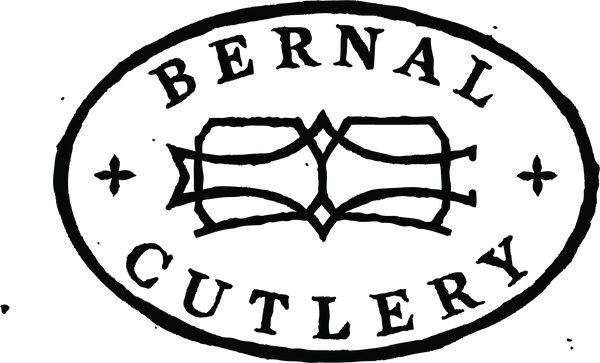-
Currency
-
NEW
- All New Products
- New Kitchen Knives
- New Kitchen Tools
- Latest Vintage
- New Outdoor & Utility
- New Pantry
-
What's in my Basket Series
- Ryo Sakai -Kuma Sushi
- Ian McNemar - Woodworker, Instructor
- Anna Voloshyna - Author
- Jorge Martinex Lillard - Lolo´
- Chris Yang - Piglet & Co
- Griffin Wilson - @cabincorn
- Gabe Rudolph - Gestura Utensils
- Marc Schechter - Square Pie Guys
- Molly DeCoudreaux - Food Photographer
- Geoff Davis - Burdell Soul Food
- Jen and Wes - @crazythickasians
- Josh Donald - Bernal Cutlery
- Kelly Kozak - Bernal Cutlery
- Jessica Sullivan - Poppy SF
- Sylvan Mishima Brackett - Rintaro
- Michael Myers - Film Character
- Ali Hooke - @alihooke
- Bruce Hill - The Chef's Press
- Dylan Carasco - Butcher's Guide
- Spencer Horowitz - Hadeem
-
Japanese Knives
- Ashi Hamono
- Gihei Knives
- Godo Tadaharu
- Hado
- Hatsukokoro
- Hitohira
- Jiro Nakagawa
- Iwasaki Kamisori
- Kaji-Bei
- Kamo Shiro
- Kanehide
- Konosuke
- MAC Knife
- Masakane
- Makoto Tadokoro Marushin
- Mizuno Axes
- Morihei
- Myojin Riki Sesakusho
- Nakagawa Hamono
- Naozumi
- Nigara Hamono
- Sakai Kikumori
- Shigefusa
- Tagai
- Takada no Hamono
- Tanabe Tatara
- Yoshikazu Tanaka
- Tosa
- Tsukasa Hinoura
- Yoshikane
- Wakui
-
Global Knives
- Allday Goods (GBR)
- A Wright & Son (GBR)
- Blenheim Forge (GBR)
- J Adams (GBR)
- John Nowill & Son (GBR)
- Wood Tools (GBR)
- Au Sabot (FRA)
- Chazeau Honoré (FRA)
- Fontenille Pataud (FRA)
- K Sabatier (FRA)
- David Margrita (FRA)
- Opinel (FRA)
- Eichenlaub Tableware (DEU)
- Friedr Herder (DEU)
- Windmühlenmesser (DEU)
- Florentine Kitchen Knives (ESP)
- Pallares (ESP)
- Helle (NOR)
- Andersson & Copra (SWE)
- Hults Bruks Axes (SWE)
- Kalthoff Axes (SWE)
- Morakniv (SWE)
- Iisakki Jarvenpaa (FIN)
- Zirh (TUR)
- Alma Knife Co. (USA)
- Bernal Cutlery (USA)
- Benchmade Knives (USA)
- Buck Knives (USA)
- Dexter Russell (USA)
- Rolin Knives (USA)
- Silverthorn (USA)
- Steelport Knife Co. (USA)
- Tactile Knife Company (USA)
-
Styles
- Bernal Cutlery Collaborations
- Knife Sets
- Carving Sets
- Japanese Kitchen Knives
- Western Kitchen Knives
- Chinese Style Cleavers
- Bread
- Butchery
- Cheese | Charcuterie
- Young Chefs
- Woodworking | Hobby | Craft
- Kamisori Razors
- Table | Steak
- Pocket & Folding
- Fixed Blade, Axes & Outdoor Tools
- Scissors | Shears | Snips
- Left Handed
- The Vault
- Vintage
- Sayas | Guards
- Sharpening
- Kitchen | Cookware
- Tableware | Service
- Pantry
- Accessories
- Deals
- Gift Cards
- INFO
or
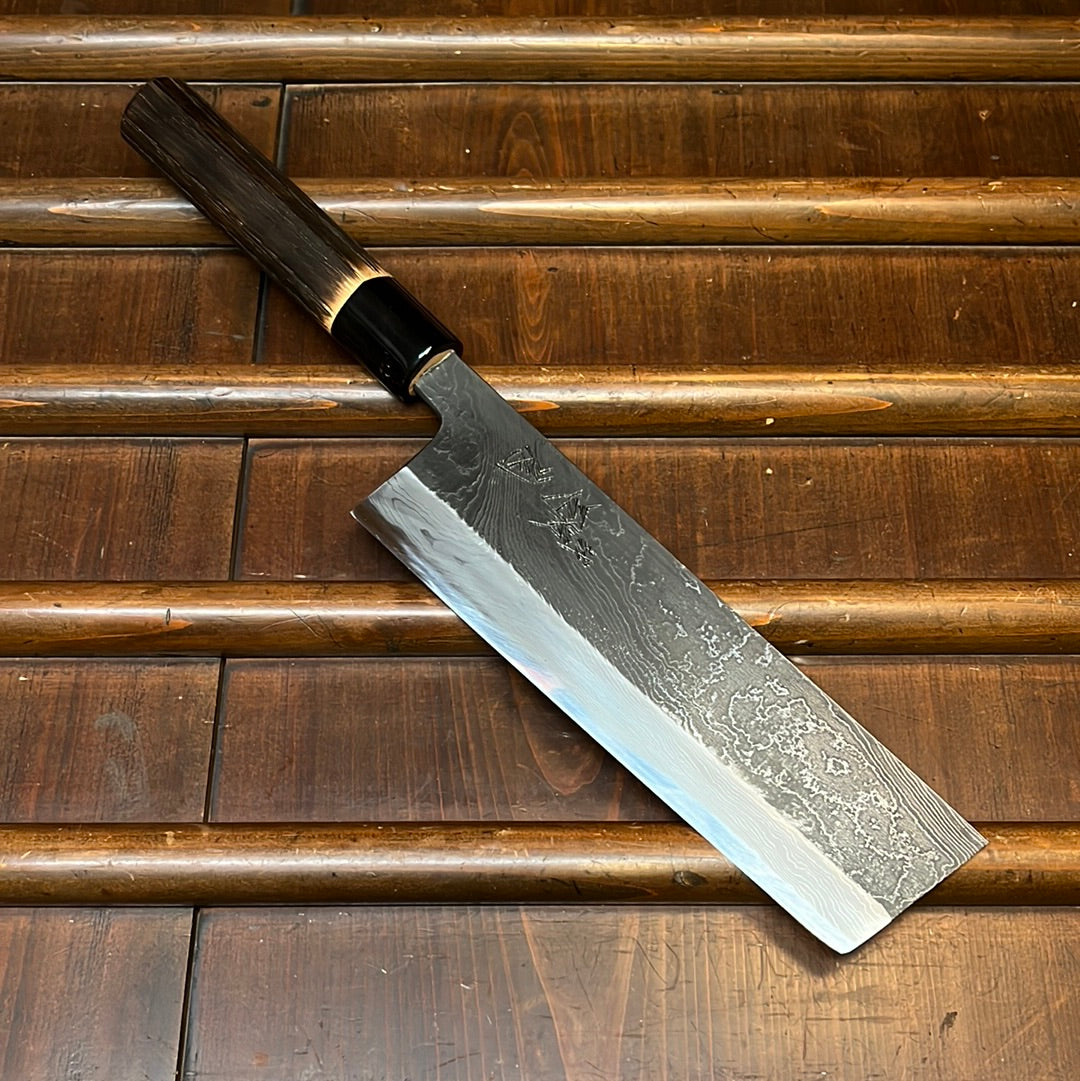
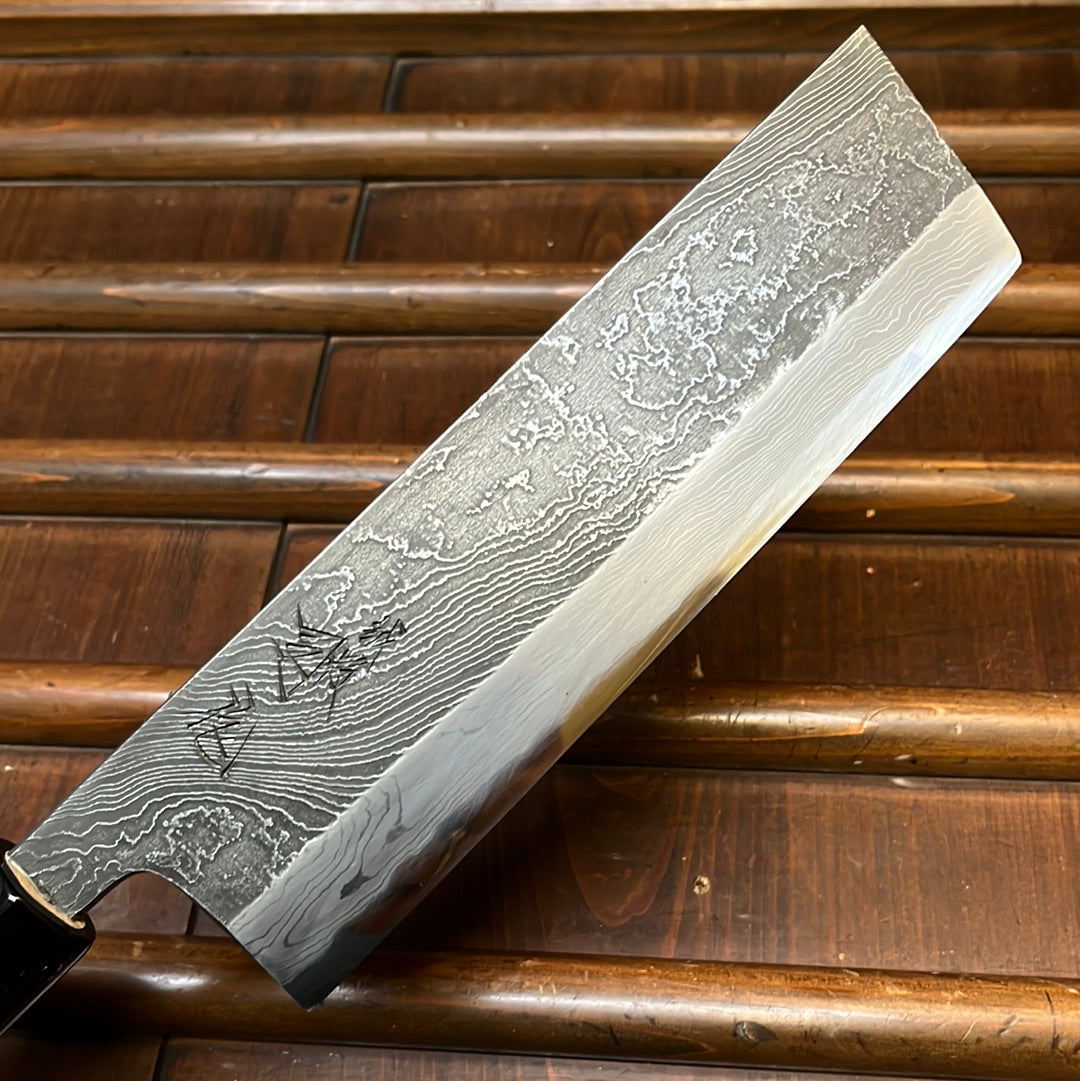
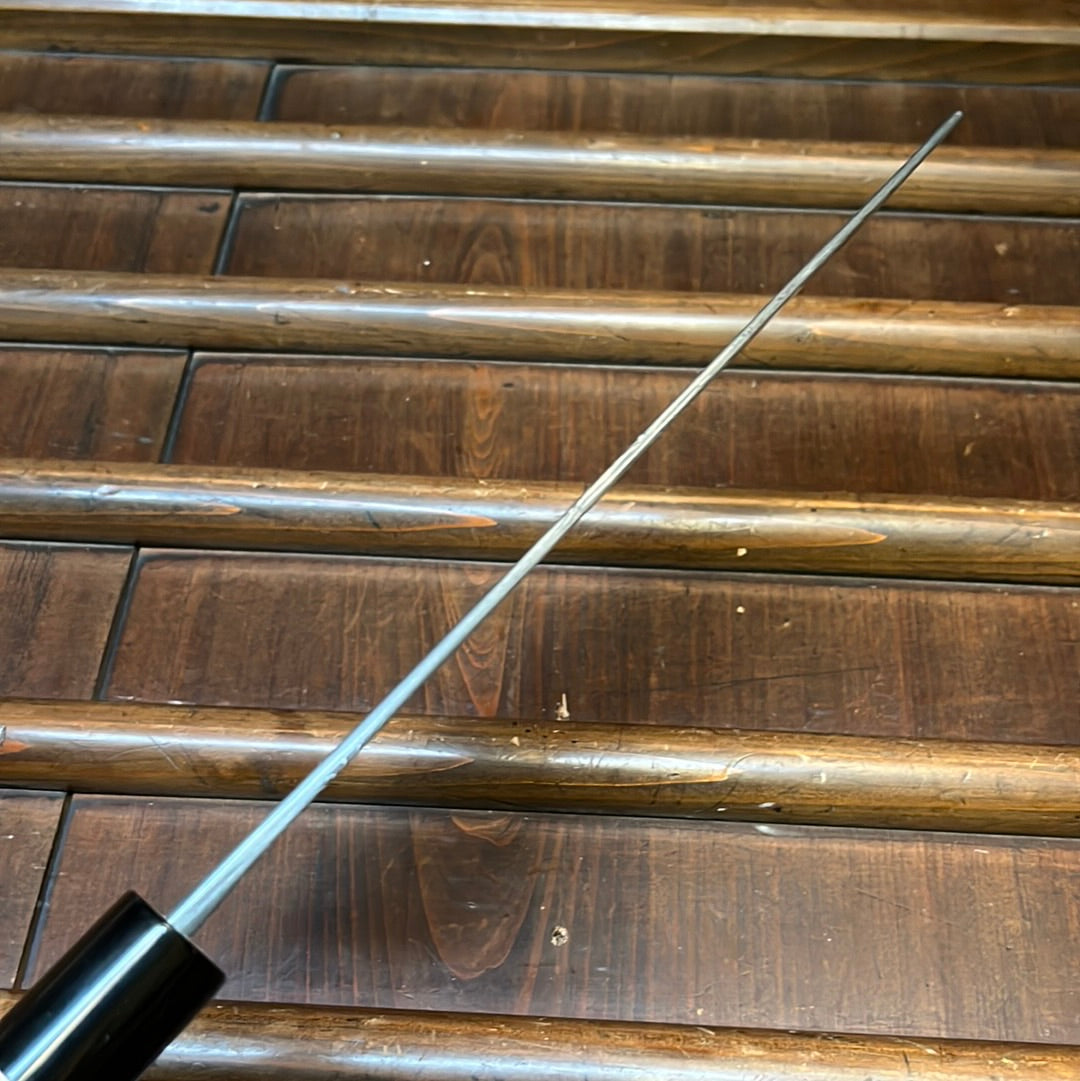
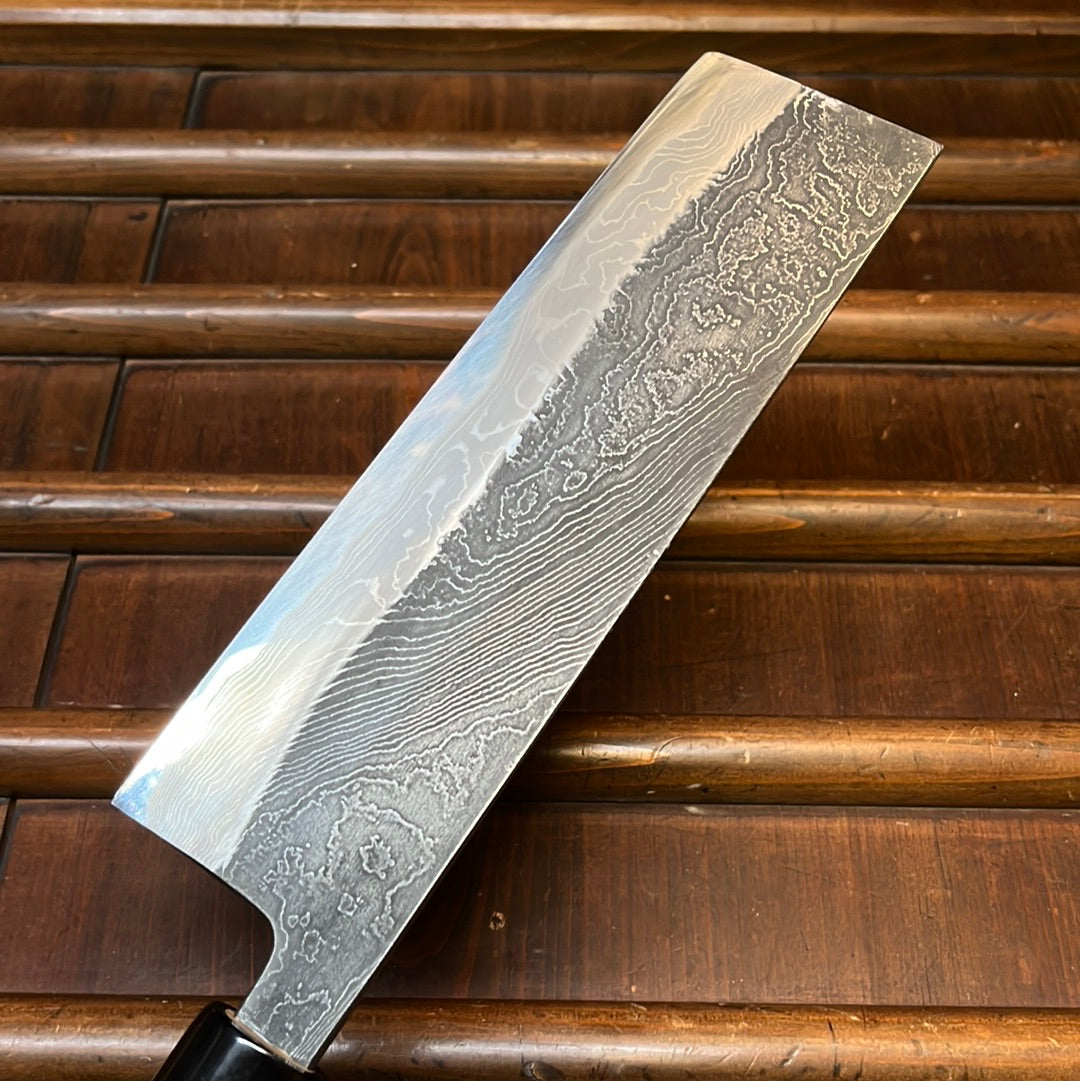
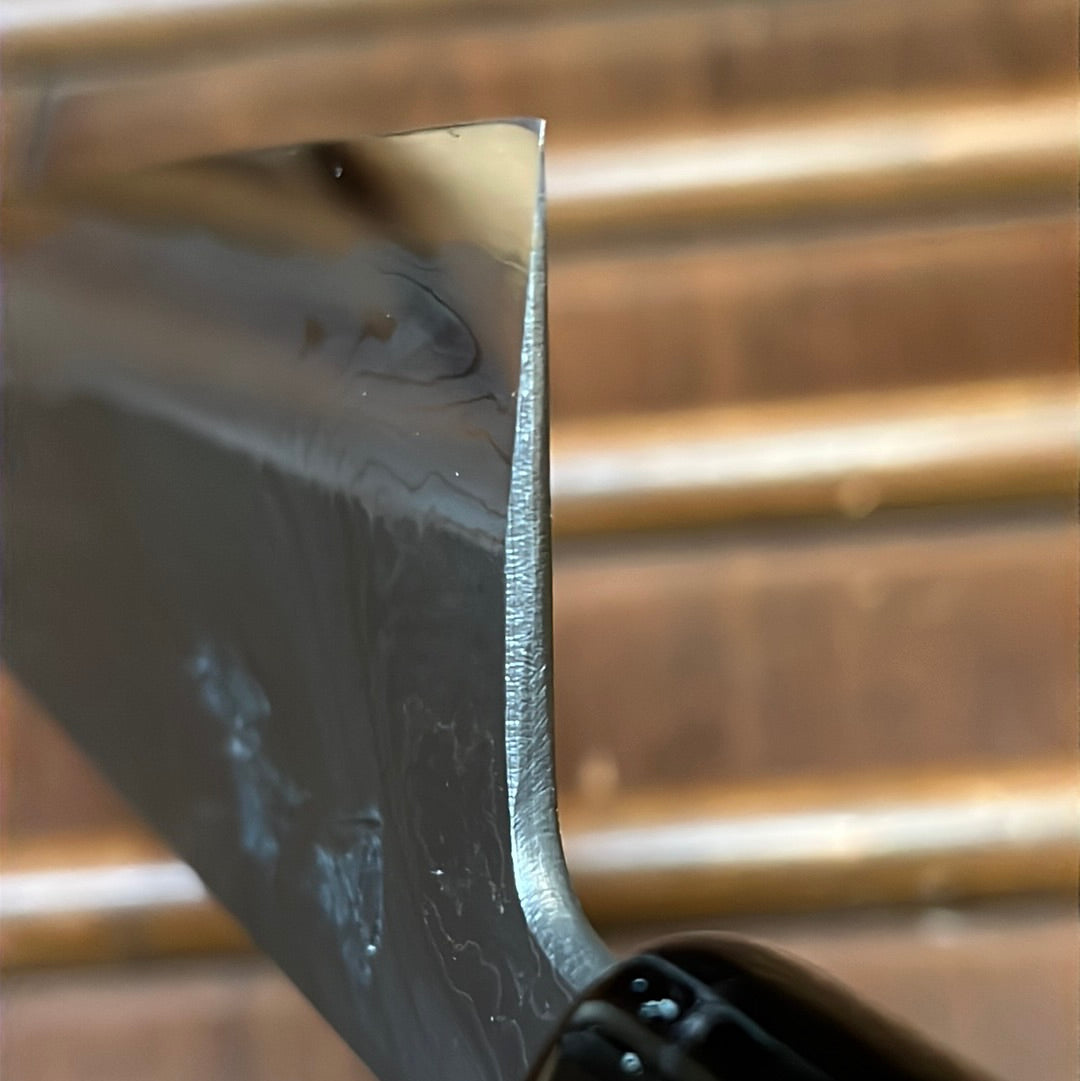
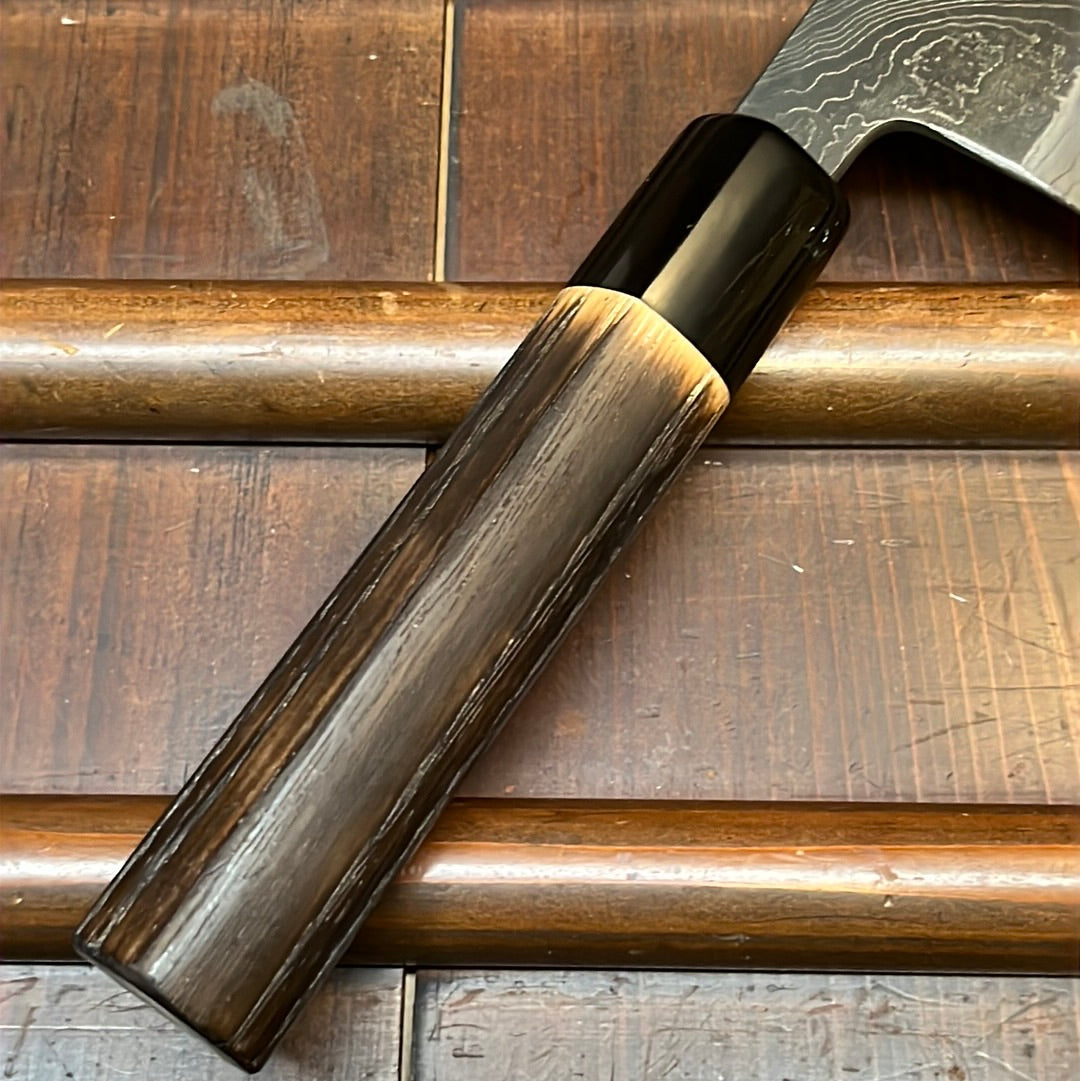
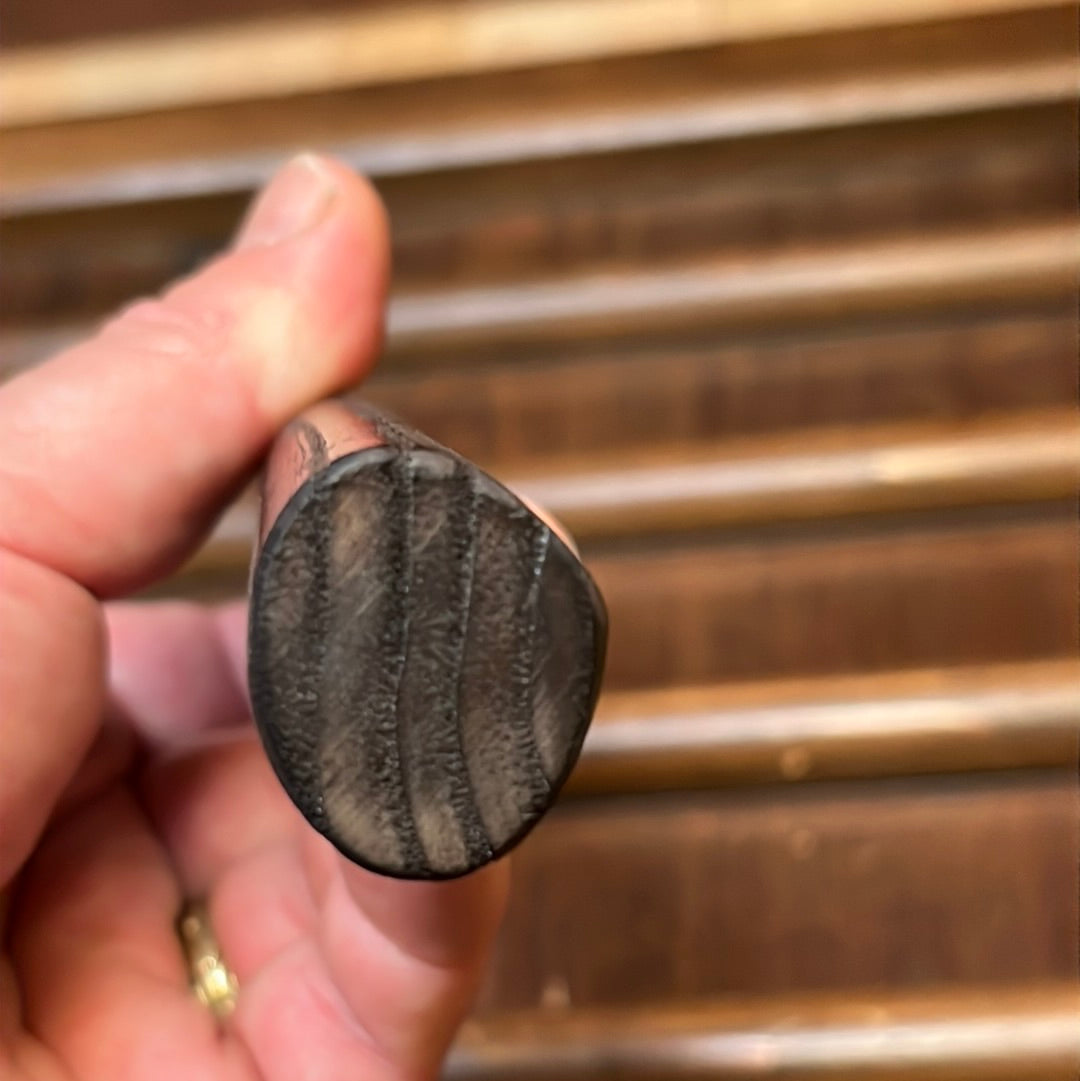
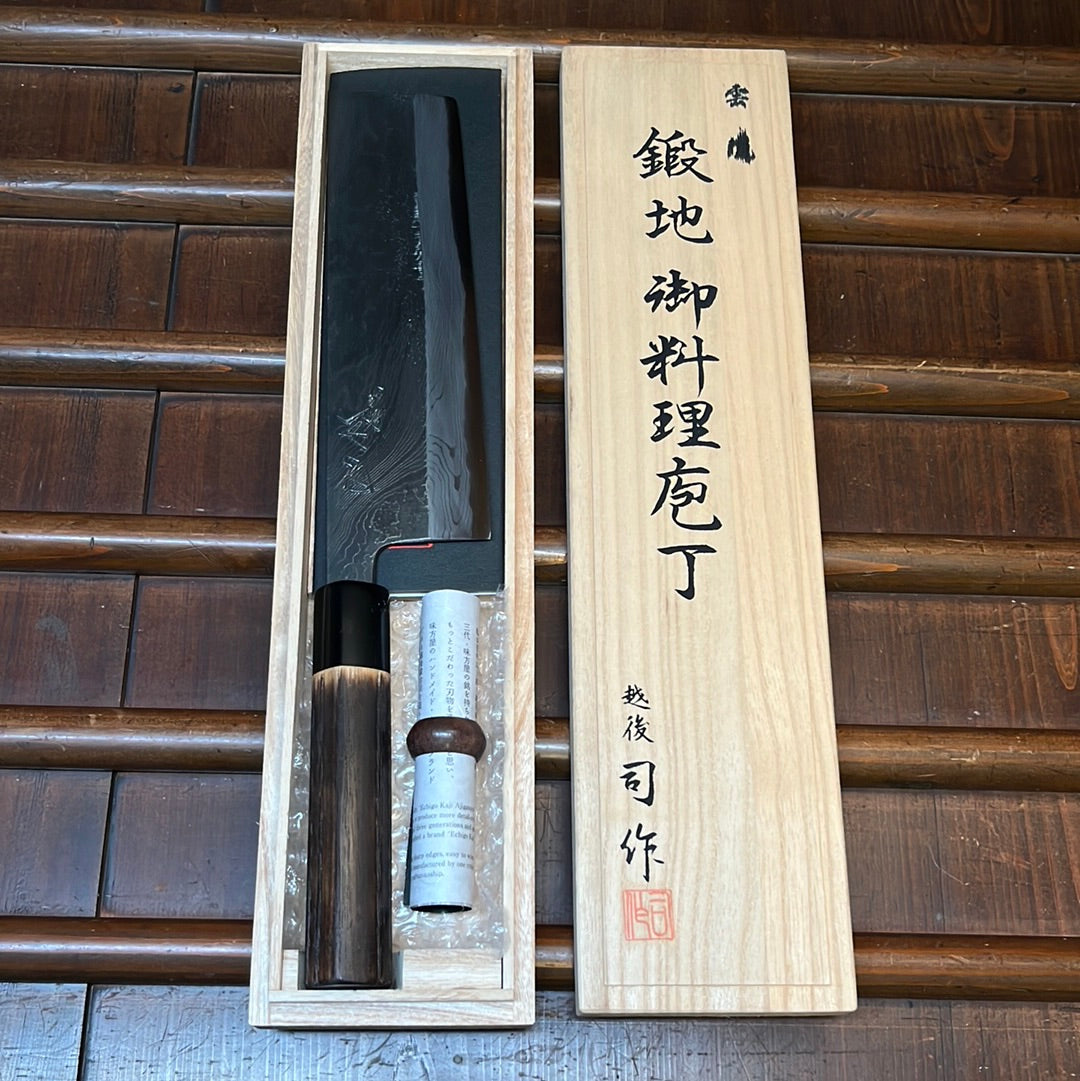
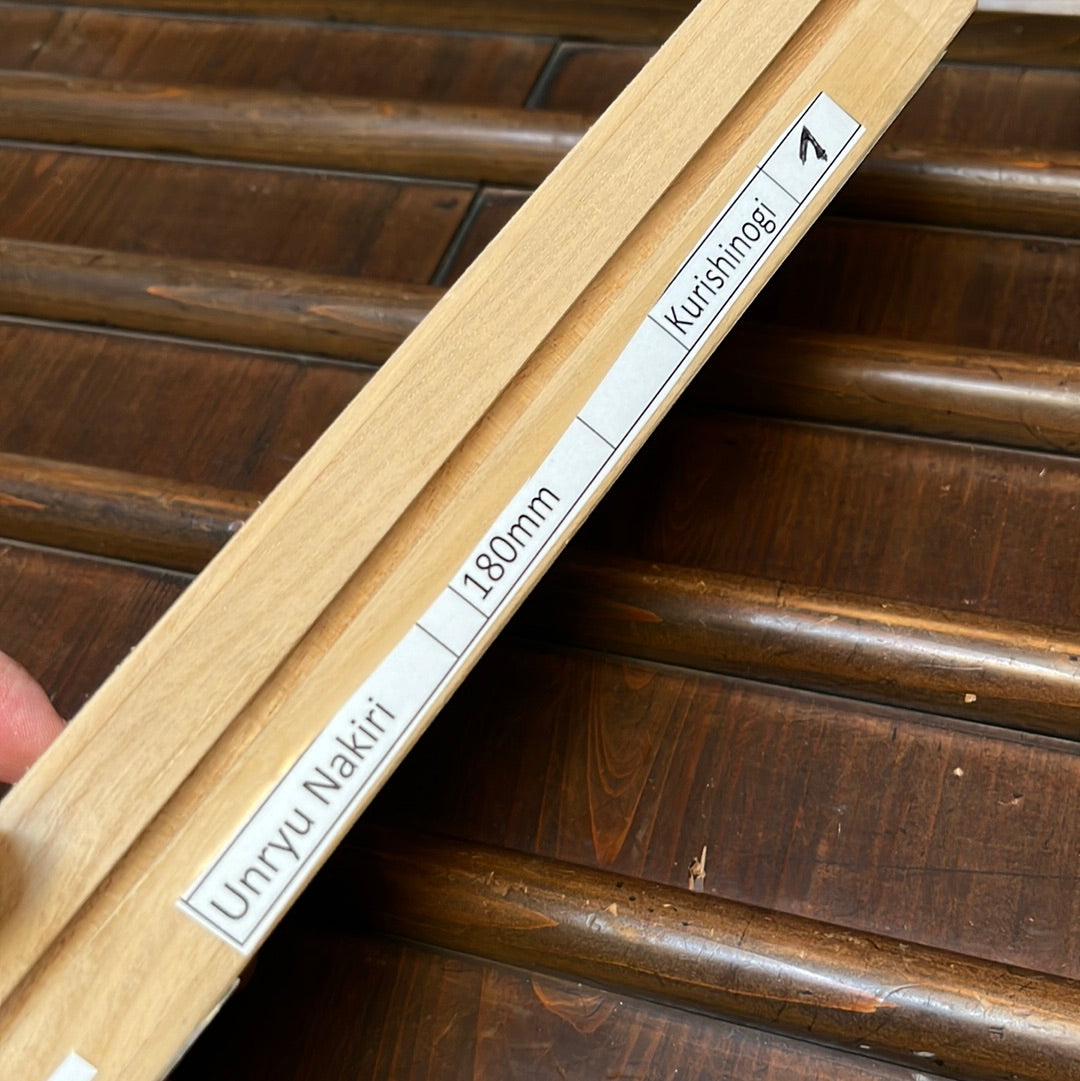
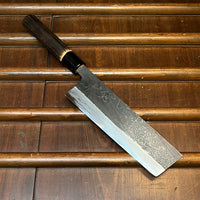
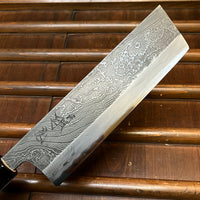
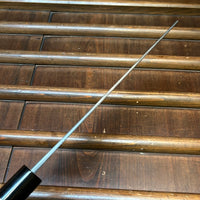
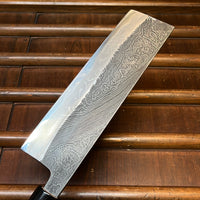
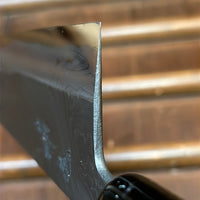
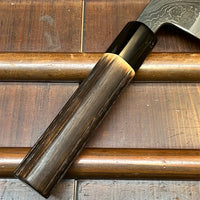
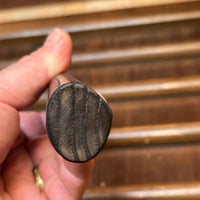
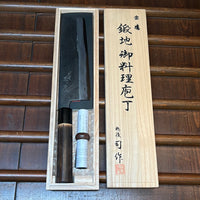
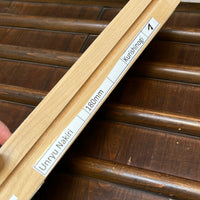
Tsukasa Hinoura 180mm Nakiri Shirogami Warikomi Unryu Suminagashi Burnt Chestnut Horn
-
Regular Price
-
£1,777.16
-
Sale Price
-
£1,777.16
-
Regular Price
-
Sale
Sold Out
-
Unit Price
- /per
- Regular Price
- £1,777.16
- Sale Price
- £1,777.16
- Regular Price
- Unit Price
- /per
Hinoura-San’s 'Unryu' is hand-forged with a #2 shirogami, or white steel core, and a layered iron and mild steel cladding. Tsukasa Hinoura is famous for his heat treatments, coaxing incredible edge life and toughness out of the materials as well as creating mesmerizing patterns in his suminagashi damascus cladding.
Unlike the usual sandwiched layering of a hon kasumi knife, this series is made with the hagane (cutting layer core) with the iron jigane (cladding) folded around it. These knives are NOT stainless, and extra care should be taken to keep them dry when not in use. The blade will develop a dark patina with use, and any orange rust needs be removed with a light abrasive. Camellia oil is recommended on the blade in between uses.
Tsukasa Hinoura is a third generation knife maker in Sanjo, Niigata, Japan. Hinoura-San uses no modern machinery in the production of his knives, and he does all the finish grinding and sharpening himself. From the forging of the jigane cladding, the warikomi forge lamination of the steel core and cladding, the water quench heat treatment to the final whetstone finish and all steps in between, traditional techniques are methodically employed. Hinoura-San is known for his examination of traditional Japanese blacksmithing with modern metallurgical microscopy, on both his own work and the work of other Japanese blacksmiths. All of his research supported the functional importance of traditional techniques that had been started to be viewed as antiquated or unnecessary with modern steels and the results in Hinoura-san's steel quality are superb.
Hinoura-san was a student of the immensely skilled Kosuke Iwasaki who is responsible for Sanjo blacksmithing enjoying the high level of skill it does today.
Tsukasa Hinoura's output is very limited due to the high degree of labor in each knife made, we are very happy to get them whenever they are available.
This is a carbon steel knife. Carbon steel is expected to develop a dark patina with use. It needs to be hand washed and dried immediately after use. Do not air dry. Do not put it in the dishwasher. Long exposure to moisture and debris will result in rust. Any rust development should be removed with a light abrasive.
Twisting, scraping, and heavy use, as well as use on hard and very dense objects can lead to edge damage. Use on a quality wooden cutting board will help the knife stay sharper for longer. Use on hard surfaces like plates and bamboo will reduce the edge life and can result in edge damage. Special attention needs to be taken to prevent edge damage. Scraping, twisting and forceful as well as using on hard or very dense foods can result in chipping.
We recommend hand sharpening on whetstones. We have found that most Japanese knives perform best at a finer finish starting around 4000. Avoid pull through sharpeners and non-water cooled mechanized sharpening. Ceramic honing rods are preferred.
Recently Viewed
About Bernal Cutlery
We are a full-service cutlery shop offering sharpening services, Japanese and Western culinary knives, vintage knives, outdoor, pocket and craft knives, cooking tools and accessories. We also offer knife skills and sharpening classes, and more.
We are proud to serve kitchen professionals, knife enthusiasts and home cooks alike. Located in the Mission District of San Francisco, California.
